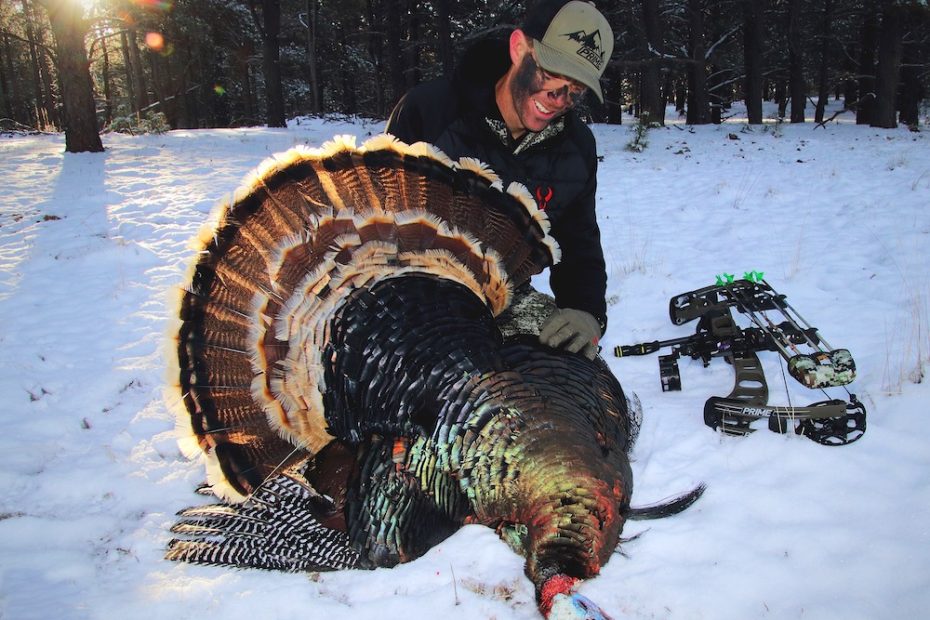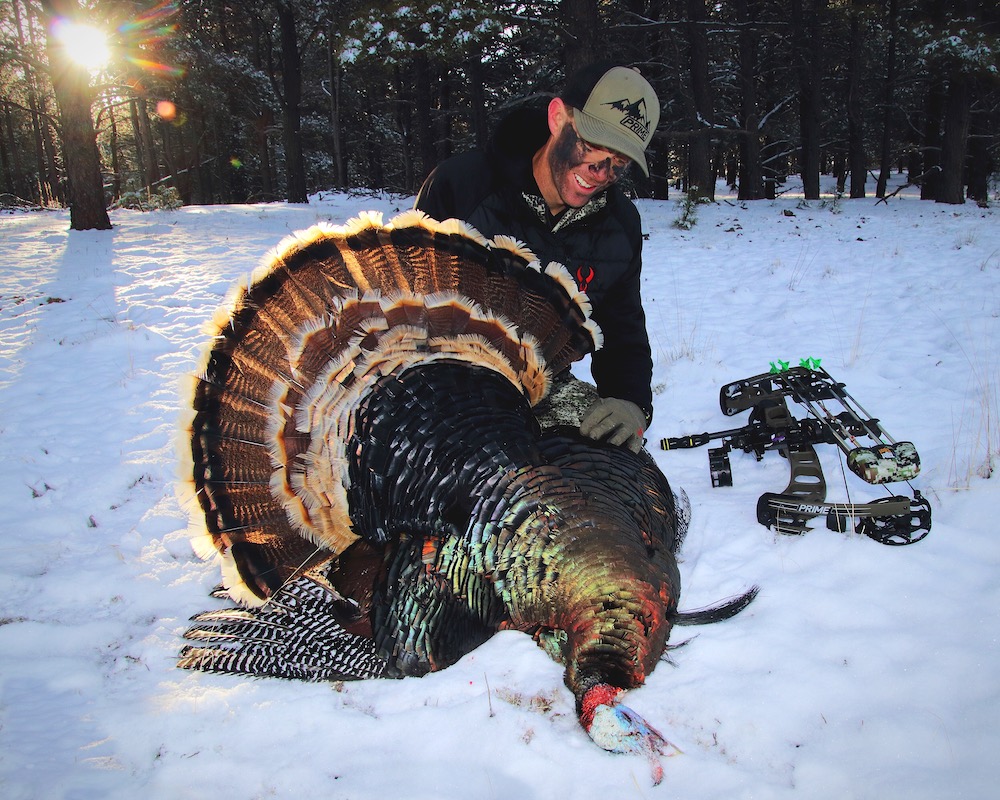
Can you feel it? Spring is around the corner, meaning vibrant tail fans, ebony feathers, spurs, beards, and loud gobbles. Damn, I can’t wait.
Typically, stick-and-string goers get the first crack at springtime noisemakers in most states. Archery-only seasons give bowhunters a chance to hit the woods, often for several weeks, before loud booms start filling the woods.
I could write pages about the importance of gear for bowhunting turkeys, and I could go into depth about pulling less poundage than more, decoy setups (bow mounted and standard), calling, etc. Not in this article, though. This article is 100 percent dedicated to a topic I feel loads of archers overlook regarding turkey hunting — broadhead selection.
No Fixed Blade Heads, Please!
I hunt turkeys all across the country each spring, and I do several media hunts, but I spend 30-plus days chasing birds on public land in different states. The point is that I run into many turkey hunters and am surprised how many have small fixed-blade broadheads threaded into their arrow shafts.
Turkeys are hollow-boned and thin-skinned. Yes, they have dense feathers, but you’re into the goodies as long as the arrow penetrates 4 to 6 inches. This isn’t a heavy-boned elk with thick bones and tons of muscle. Many fixed-blade broadheads are vented, meaning there is open space between the ferrule and the blade. As the broadhead enters the bird, gobs of feathers instantly get sucked into these vents, which reduces penetration. It happens so quickly that the feathers pile into the vents and cover the blades.
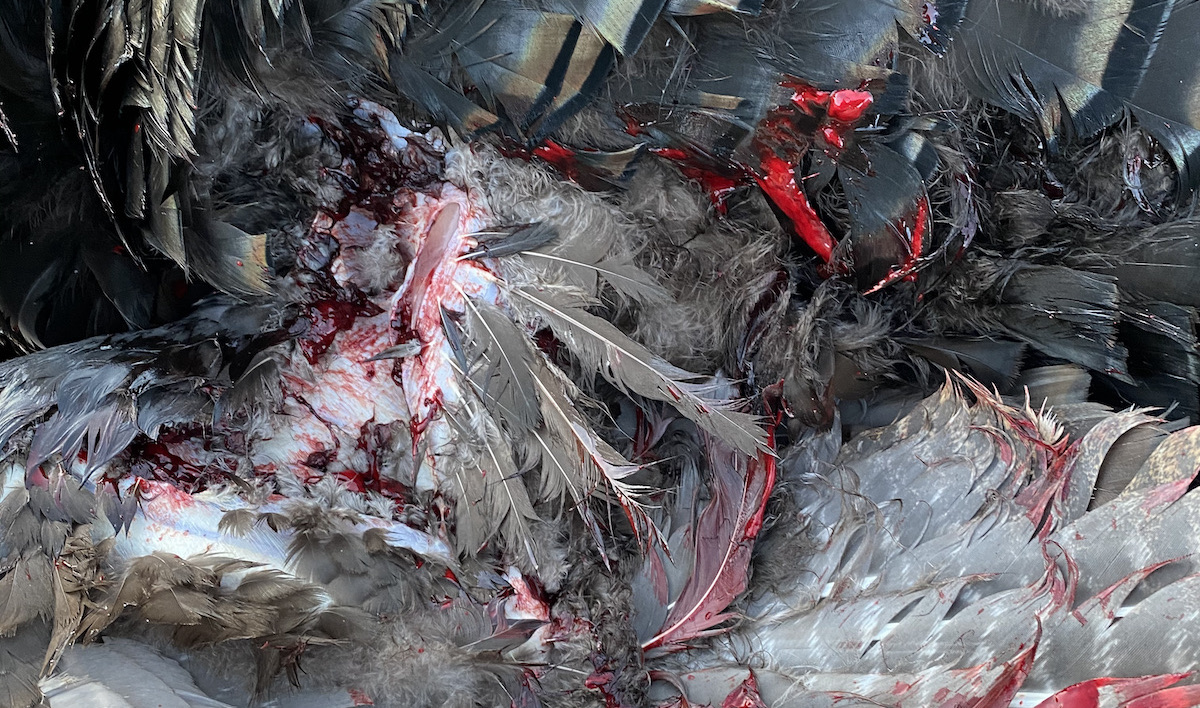
Turkeys also have extremely small vitals. Depending on the bird’s angle, you must hit a target between the size of a baseball and a softball if you want a clean, quick kill. Distinguishing vitals on a turkey, especially one in strut, is complex, and a small-cut fixed-blade broadhead reduces your cutting surface. I have seen lots and lots of turkeys hit with fixed-blade broadheads — some of them looked like money shots, too, and the birds weren’t recovered.
Go Big or Go Home!
When bowhunting turkeys, I want a large-cut expandable broadhead on the front of my arrow. Not only do top-tier expandables fly like field points (more on this later), but I love the gash style they provide. I don’t shoot any expandable head with a cutting diameter of fewer than 2 inches for turkeys. Over the past few seasons, my go-to has been SEVR’s Titanium 2.0, and Rage’s Hypodermic NC is also murderous on big Toms.
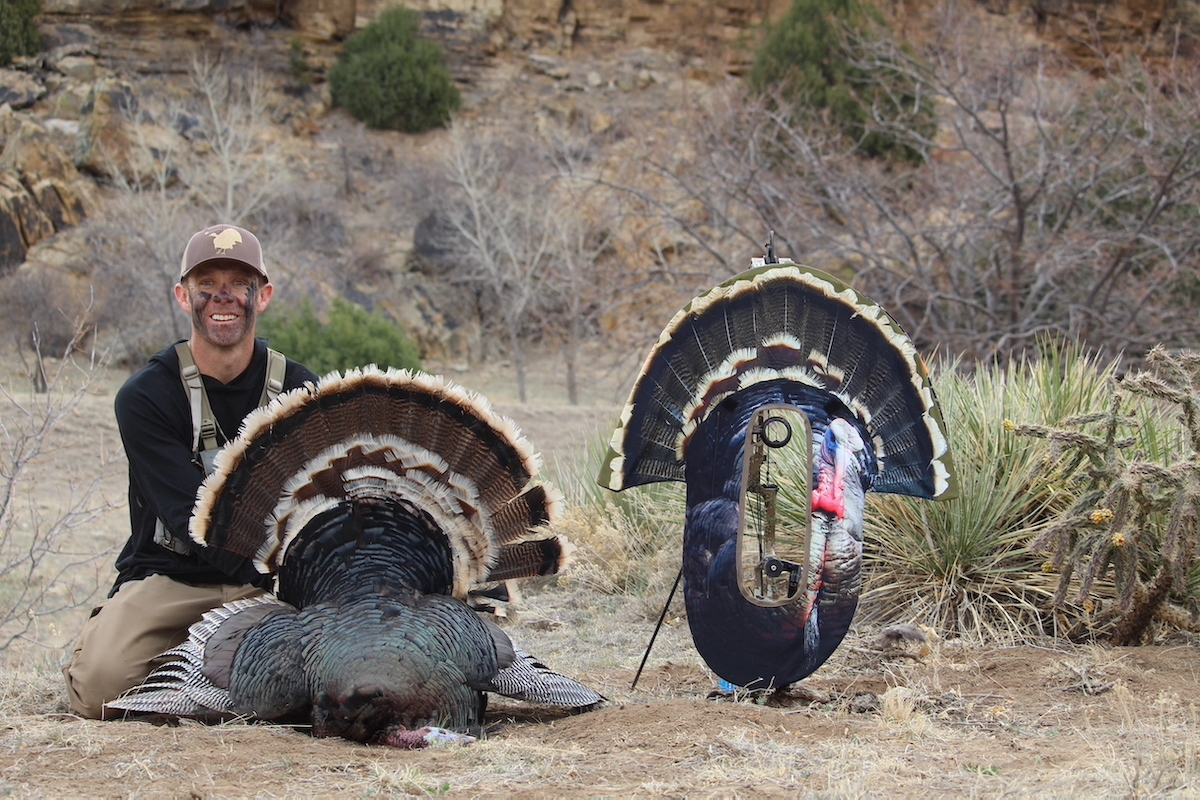
Why?
A two-blade broadhead creates a slap cut, and if the blades are razor sharp, they sever (no pun intended) the initial feathers. With no vents in the blades, feathers don’t gum up the sharpened portion of the blade, and penetration is not lost. Large cutting expandable broadheads also give you room for some error. There have been multiple times over the years where I was sure the hit was terrible, and the bird was nonrecoverable, but the large entrance wound and even larger exit wound saved my bacon.
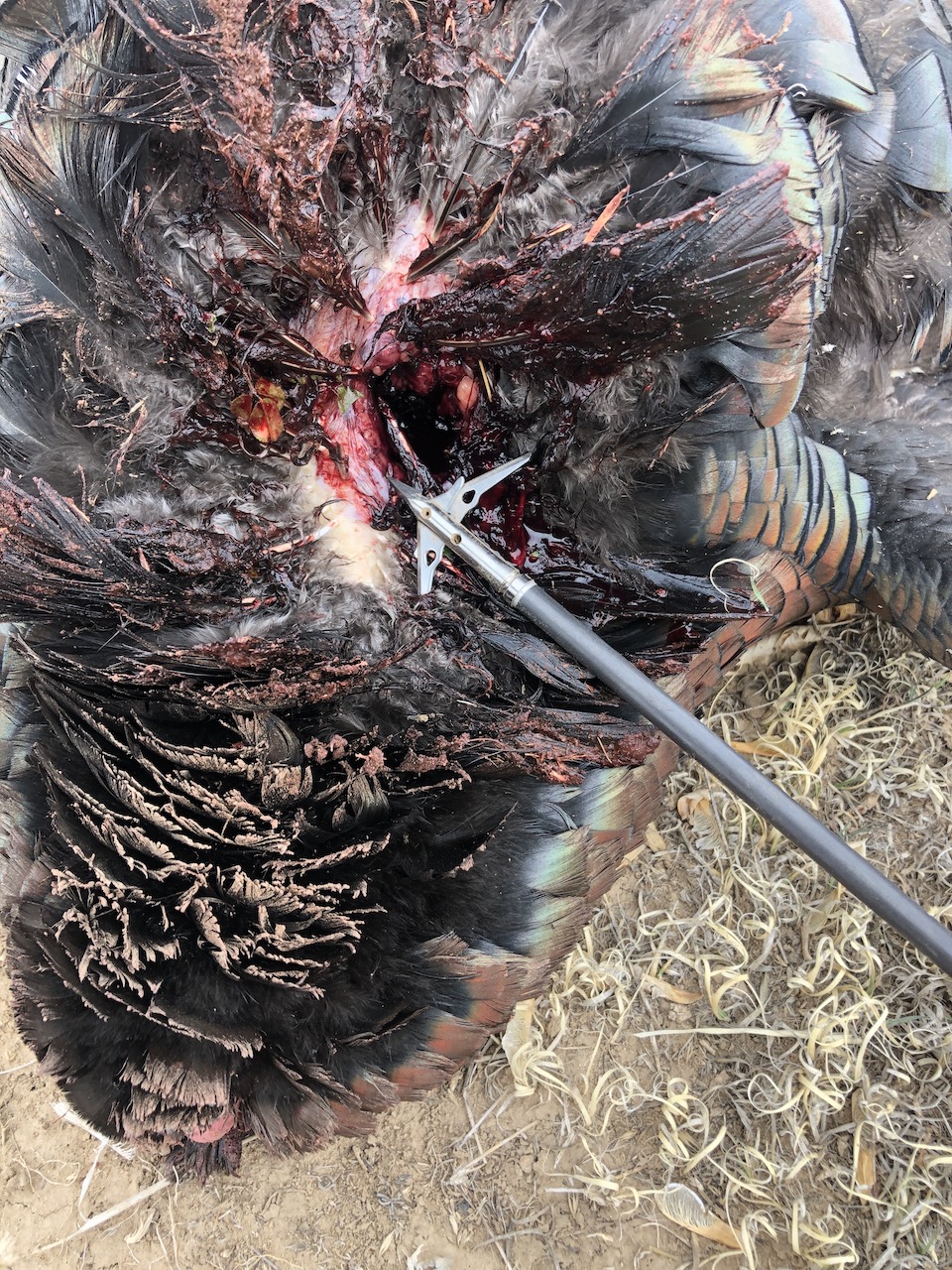
Don’t Assume!
Assumptions are the mother of all screw-ups, and there are zero excuses for not shooting the broadhead you plan to hunt turkeys with. I realize broadheads are expensive, and dedicating a few to practice heads isn’t exactly wallet-friendly, but you’ll put more meat in the freezer if you take the time to practice with the broadheads you plan to hunt with.
This is another reason I’ve become such a fan of SEVR broadheads. Each broadhead (sold consumer-only) comes with an extra set screw. During development, SEVR engineers placed a second threaded hole in the ferrule below the hole that holds the blades. All you need to do is take the included Allen wrench and thread the included set screw into that open hole with the blades in the closed position inside the ferrule. This set screw allows you to practice with the same broadheads you plan to hunt with.
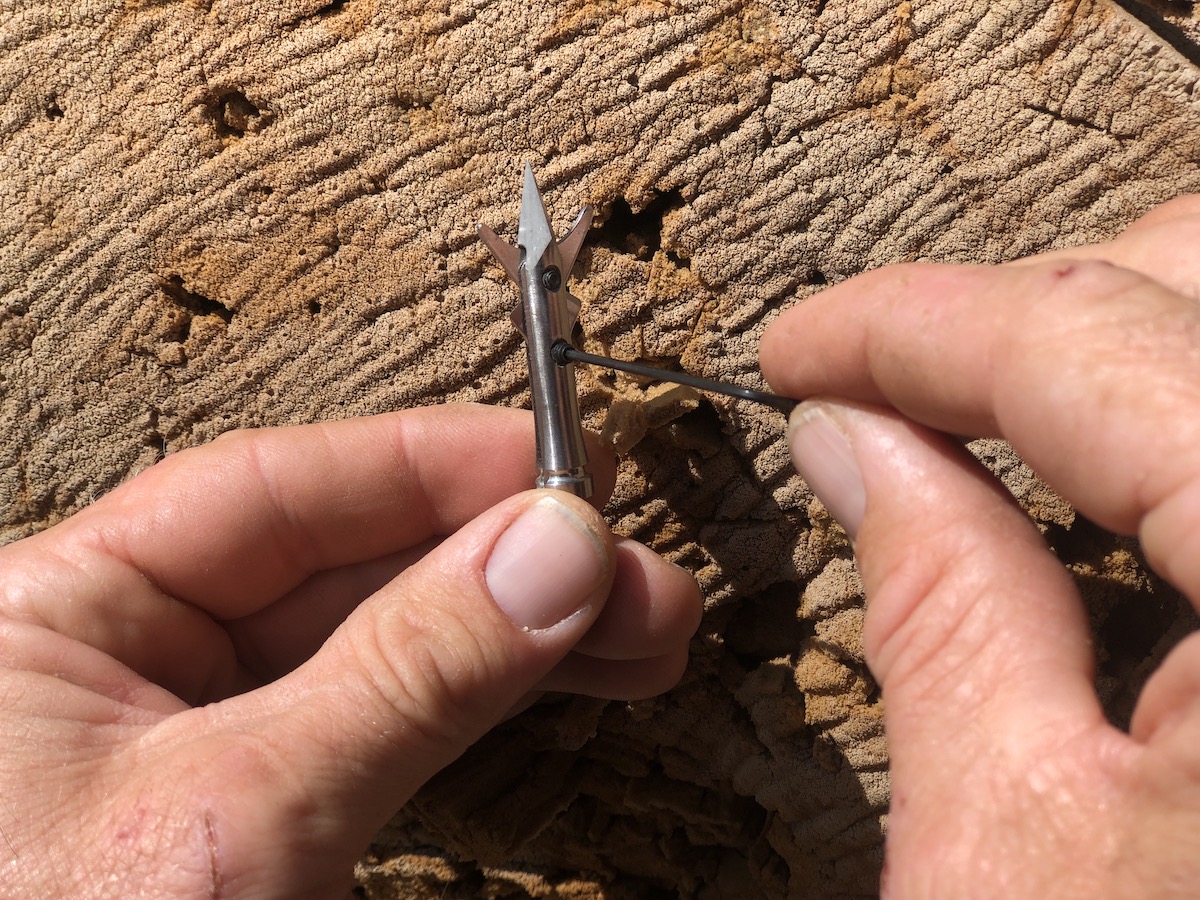
Of course, I’ve been asked: Have you used the set screw, removed it, and harvested a turkey with it?
The answer: Not only turkeys, but elk, deer, pronghorn, bear, and a bighorn sheep, too.
With the set screw in place, the blades are never exposed to the foam. As for the head portion of the broadhead, foam targets do nothing to damage the needle-point tip, and I touch up the edges of the heads on a Work Sharp Pocket Knife Sharpener.
What About Lost KE?
Yikes! I worry when someone tells me they are pulling 50-plus pounds of bow weight and are worried about their loss of kinetic energy shooting an expandable broadhead for turkey. When he was 12 years old, my son, Hunter shot a turkey with a Rage expandable at 18 yards pulling 40 pounds, and got 8 inches of penetration. The bird died in seconds.
Today’s expandable broadheads are far better than those offered 20 years ago, and the worry, especially for turkeys, about having enough kinetic energy shouldn’t be a worry.
For big-game animals, I pull 72 pounds of bow weight. During turkey season, I drop my poundage to between 62 and 65 pounds depending on the bow and the tune I get. My current spring setup includes Hoyt’s VTM 31 set at 65 pounds, SEVR’s Titanium 2.0, and Easton’s 4MM FMJ. My total arrow weight is 482.2 grains, and my bow sends these arrows at 274 fps. My kinetic energy rating is 80.34 foot pounds, enough to blow through a moose.
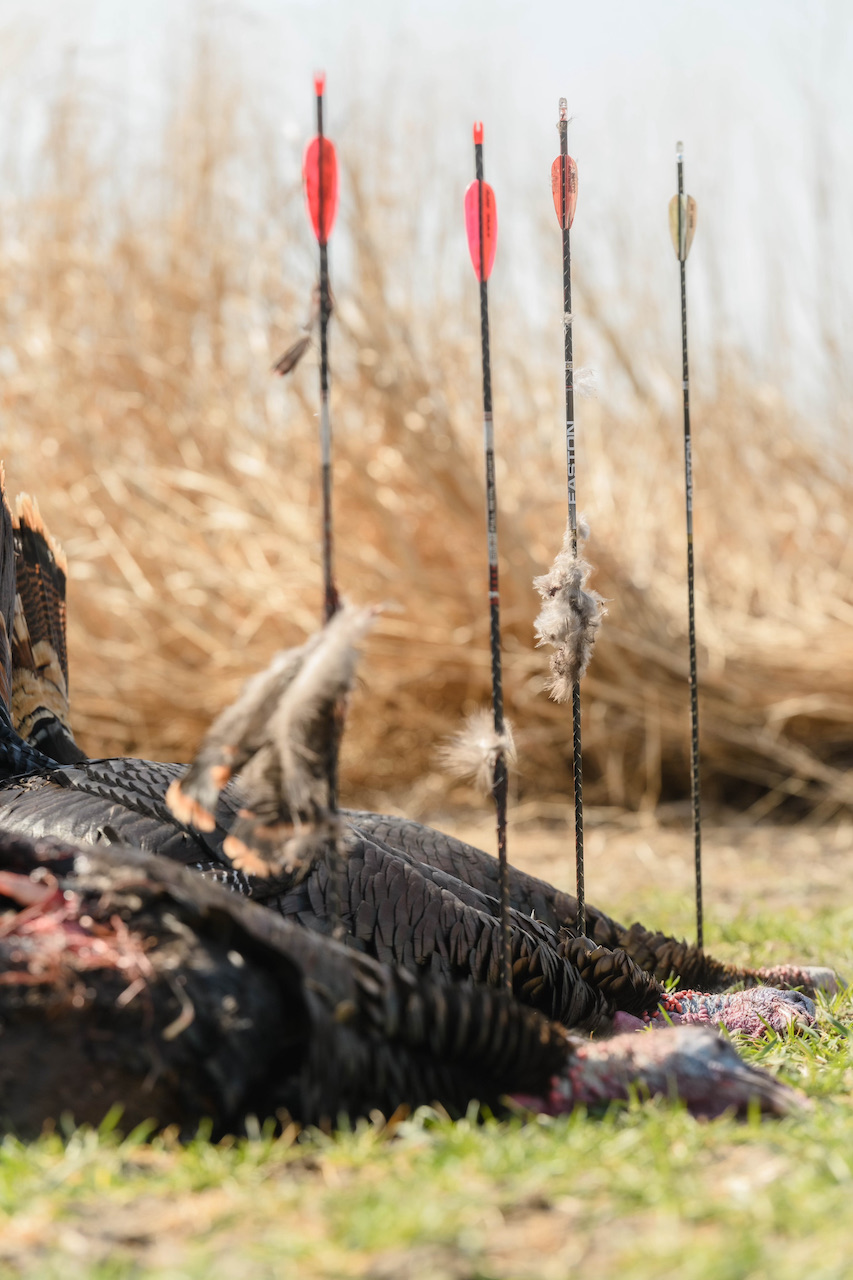
It’s also important to note that you shouldn’t be worried about pass-throughs if you’re shooting lower poundage. I love when I get 8 to 11 inches of penetration, and my broadhead stays in the bird. The blades grind and cause increased trauma if the bird walks, flys, or tries to run.
Put more longbeards in the freezer this season and get more grip-and-grin photos by shooting a large-cut expandable broadhead.
